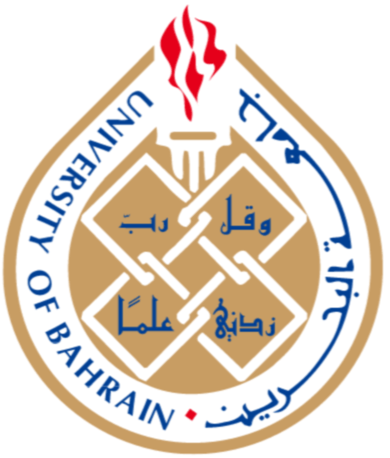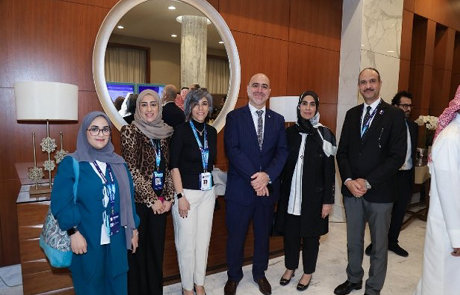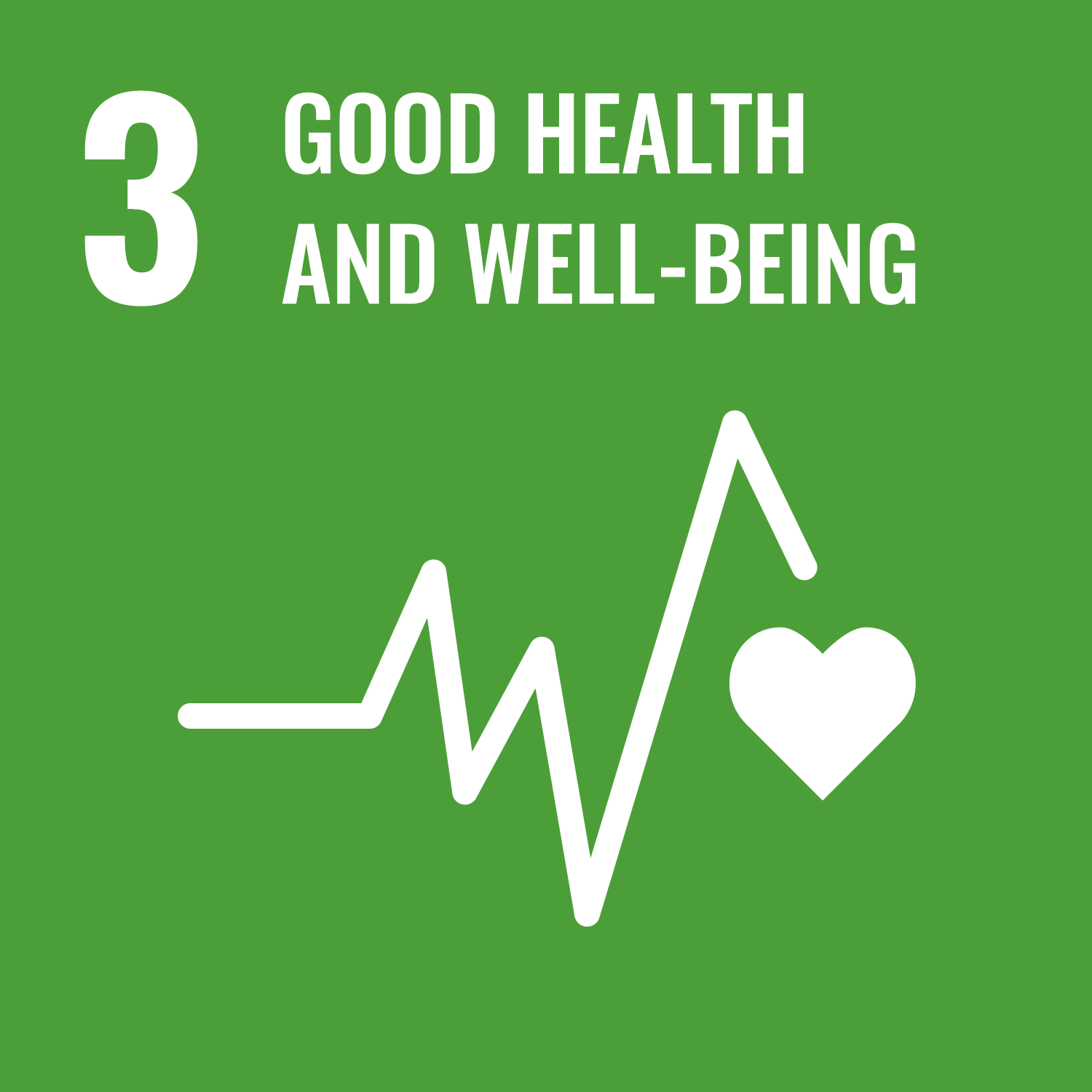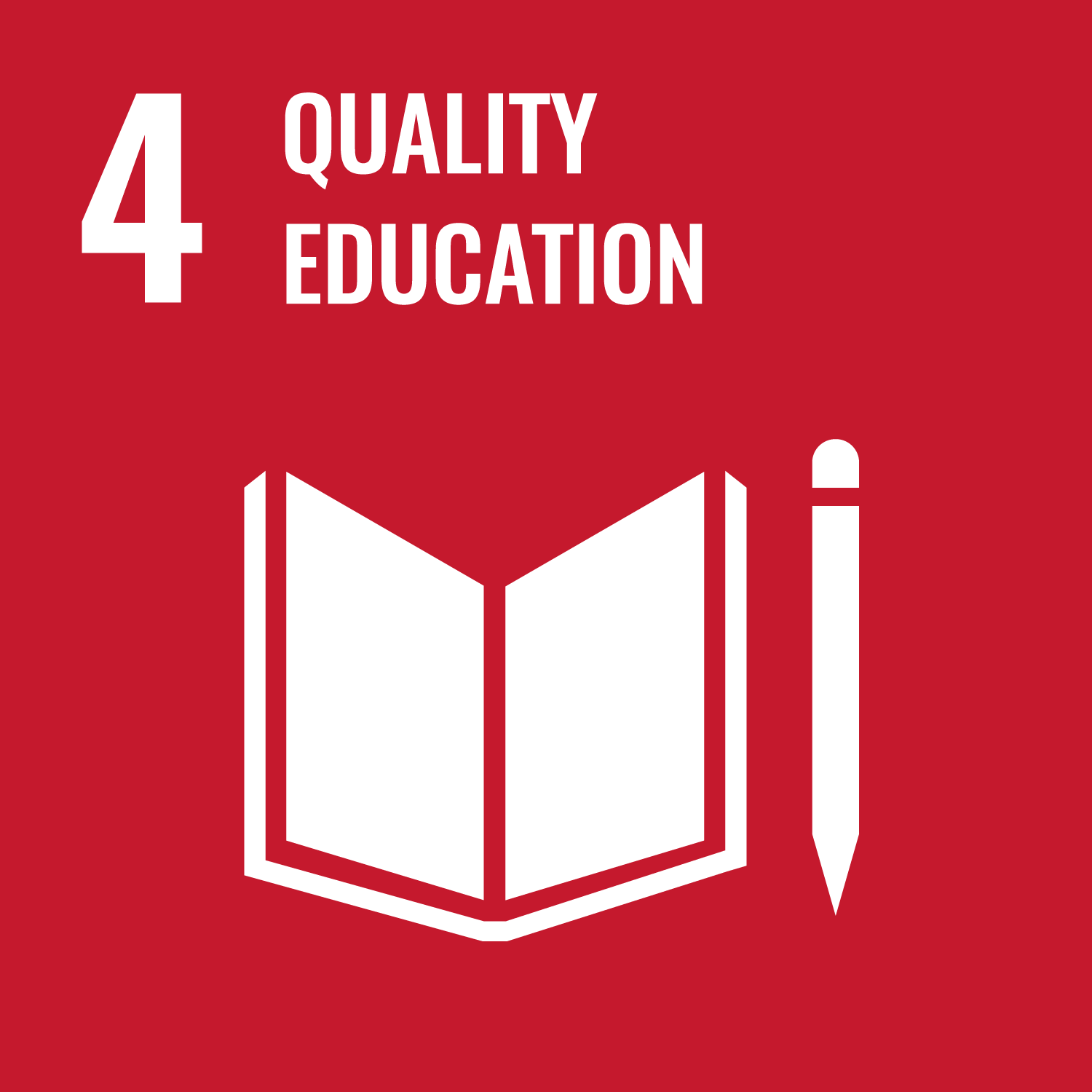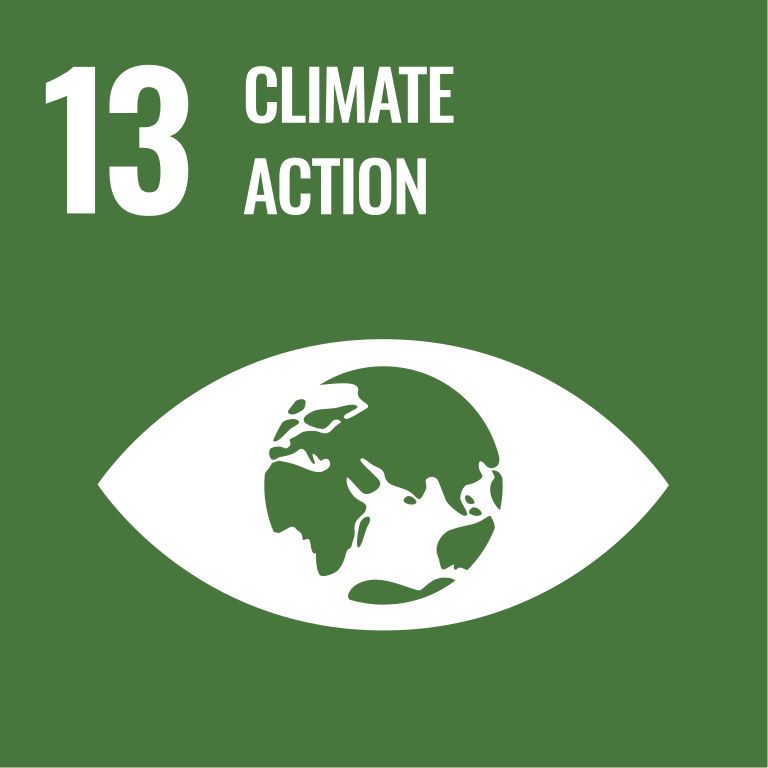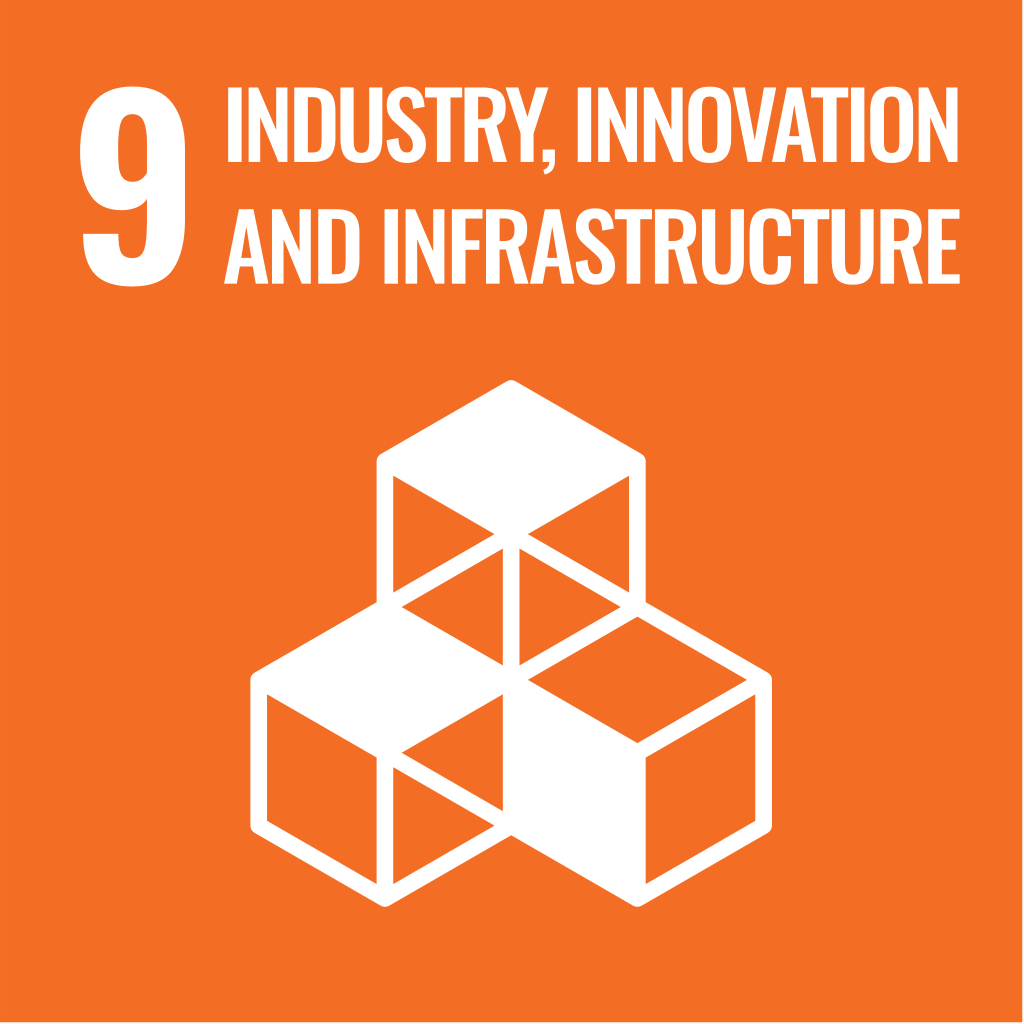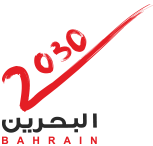Engagement (Community and Industry): Initiatives
SDG 3: Focus Areas
3.3.1 Current collaborations with health institutions
Does your university as a body have current collaborations with local, national or global health institutions to improve health & wellbeing outcomes?
As:
– Global collaborations,
– Local collaborations,
– National collaborations.
The University of Bahrain (UoB) demonstrates a strong institutional commitment to advancing public health, strengthening the health workforce, and supporting national and global health priorities through comprehensive partnerships and capacity-building initiatives. As a key contributor to Bahrain’s health ecosystem, UoB collaborates actively with global health organizations, national ministries, and local NGOs to improve health outcomes, expand clinical training, and promote evidence-based practice.
- At the global level, UoB maintains strategic collaborations with the World Health Organization (WHO), WHO Collaborating Centres, the Nursing & Midwifery LINKS Network, and the American Heart Association (AHA). These partnerships enable the university to contribute to international capacity building, deliver certified emergency life-support training, and support regional health initiatives focused on maternal, neonatal, and community health.
- At the national level, UoB plays a vital role in strengthening Bahrain’s health system through formal agreements with the Ministry of Health, Government Hospitals, and Primary Health Care Centers. These partnerships provide structured clinical placements, joint research initiatives, and opportunities for health-sector workforce development. Collaboration with entities such as the General Sports Authority and the Bahrain Pharmacists Society further expands UoB’s impact in promoting physical activity, medication safety, and public health literacy.
- At the local level, UoB’s engagement with civil society organizations—including the Bahrain Red Crescent Society, Cancer Society, Diabetes Society, Anti-Smoking Society, and Sickle Cell Disease Association—supports community-based awareness campaigns and disease-prevention programs, reinforcing a culture of health education and volunteerism.
Through these multi-tiered partnerships, alongside regional midwifery assessments, health education initiatives, and student-led public awareness campaigns, UoB demonstrates a comprehensive and whole-of-society approach to advancing SDG 3. The university’s work strengthens health systems, enhances public health knowledge, and contributes directly to improving well-being for communities locally, nationally, and globally.
Global Collaborations
The University of Bahrain maintains strong international partnerships that support health education, research, and capacity building.
- World Health Organization (WHO), Eastern Mediterranean Regional Office (EMRO):
UoB collaborates with WHO and multiple WHO Collaborating Centres to assess midwives’ learning needs, develop educational materials, and deliver regional training workshops, improving maternal and neonatal health outcomes across EMR countries. - Nursing and Midwifery LINKS Global Network (WHO Collaborating Centre):
UoB contributes regular updates to LINKS Magazine, engaging in global knowledge exchange in nursing and midwifery, strengthening global health education and research. - American Heart Association (AHA):
As an accredited International Training Center, UoB offers certified BLS and life support training to healthcare professionals and the public, enhancing emergency response capacity regionally.

Collaboration with the American Heart Association
Overview
The College of Health and Sport Sciences (CHSS) at the University of Bahrain serves as an International Training Center (ITC) for the American Heart Association (AHA), offering accredited life support courses such as Basic Life Support (BLS) and other emergency care programs. These evidence-based courses are designed to train healthcare professionals, students, and community members in essential life-saving procedures, including cardiopulmonary resuscitation (CPR) and emergency response techniques. The collaboration enhances the quality and accessibility of advanced health education in Bahrain and the region.
Impact
This Global Collaboration builds community capacity in critical care and emergency response. Through certified AHA training, the University contributes to improving survival rates during cardiac and medical emergencies, reinforces public health resilience, and establishes a sustainable model for continuous professional development in life support education.
Relevant SDG 3 Targets and Indicators:
Implementation of the Capacity-Building Educational Program for Midwives
Overview
The University of Bahrain’s Department of Nursing, in partnership with the WHO Regional Office for the Eastern Mediterranean, has initiated the implementation of the midwives’ training program. The program involves identifying target participants, organizing training workshops, and delivering tailored educational sessions based on the previously developed package. The implementation phase focuses on midwives working in primary healthcare centers across EMRO countries.
Impact
This program enhances professional capacity in maternal and child health, ensuring that midwives are better equipped to deliver safe, evidence-based care. By fostering sustainable knowledge transfer and strengthening the regional healthcare workforce, the initiative contributes directly to reducing maternal and neonatal health disparities. It exemplifies UoB’s leadership in advancing SDG 3 through regional health outreach, education, and international collaboration.
Relevant SDG 3 Targets and Indicators:

UoB Contribution to Global Network and LINKS Magazine: Nursing and Midwifery Links
Overview
The Department of Nursing at the University of Bahrain’s College of Health and Sport Sciences partnered with the Nursing and Midwifery LINKS Global Network, a WHO Collaborating Centre for Nursing Development. Through this collaboration, UoB contributes regular news updates to LINKS Magazine, published via the CORE repository, to enhance global engagement among WHO Collaborating Centres. The initiative also utilizes platforms such as Nurses.com, connecting professionals and supporting knowledge exchange in nursing and midwifery worldwide.
Evidence: Source
Impact
Relevant SDG 3 Targets and Indicators:
National Collaborations
UoB maintains formal, large-scale national partnerships that strengthen Bahrain’s healthcare and public health system.
Impact: These collaborations integrate university expertise into national healthcare delivery, strengthen health education, and support Bahrain’s public health priorities in line with SDG 3.
Collaboration With Healthcare and Sports Institutions
The University of Bahrain (UoB) has established multiple strategic collaborations with healthcare and sports institutions to enhance practical training, health education, and youth development. Partnerships include formal Memoranda of Understanding (MoUs) with the Ministry of Health, Primary Health Care Centers, and governmental hospitals, ensuring nursing students gain hands-on experience under professional supervision. Additionally, UoB’s partnership with the General Sports Authority advances sports education and research, while collaboration with the Bahrain Pharmacists Society promotes medication safety and public health awareness.
Key Partnerships
- Memorandum of Understanding with Healthcare Institutions in Bahrain
The University of Bahrain (UoB) maintains formal MoUs with key healthcare institutions — including the Ministry of Health, Primary Health Care Centers, and Governmental Hospitals — to enhance clinical education and practical training for nursing students. These agreements define mutual responsibilities, ensuring students gain supervised, hands-on experience in real medical settings. The MoUs emphasise adherence to professional ethics, health regulations, and safety standards, and require necessary vaccinations and clearances. Through structured clinical placements, these collaborations strengthen students’ competencies, integrate academic learning with healthcare practice, and contribute to improved patient care and community health outcomes in line with SDG 3.
- Memorandum of Understanding with the General Sports Authority
UoB’s partnership with the General Sports Authority (GSA) promotes health and wellness through education, research, and youth development. This MoU fosters collaboration in sports sciences, athletic training, and national sports programs, aligning academic innovation with Bahrain’s sports vision. The agreement enables joint research initiatives, community engagement, and capacity-building for aspiring sports professionals, supporting evidence-based practices in sports management, exercise physiology, and physical education. Through this partnership, UoB enhances student learning, promotes active lifestyles, and contributes to a sustainable national sports ecosystem in support of SDG 3.
- Collaboration with the Bahrain Pharmacists Society
-
The partnership between UoB’s College of Health and Sport Sciences (CHSS) and the Bahrain Pharmacists Society highlights pharmacists’ role in safe, effective healthcare. Pharmacy students and faculty run community outreach programs on responsible antibiotic use, chronic disease management, and medication safety. Educational booths, awareness campaigns, and public workshops connect academia with community needs, improving health literacy, strengthening students’ professional skills, and supporting national preventive healthcare efforts in alignment with SDG 3.
Impact
Relevant SDG 3 Targets and Indicators:
Local Collaborations
Faculty, students, and staff participate actively in local health-focused NGOs and community organizations.
- Bahrain Red Crescent Society
- Anti-Smoking Society
- Bahrain Cancer Society
- Bahrain Diabetes Society
- Sickle Cell Disease Association
Impact: Through volunteer programs, awareness campaigns, and health promotion events, the university contributes to local disease prevention, NCD control, community wellness, and health education.
Community Services and Volunteer Engagement
Overview
Faculty and staff at the University of Bahrain actively contribute to national health promotion through participation in non-profit organizations such as the Bahrain Red Crescent Society, Anti-Smoking Society, Sickle Cell Disease Association, Bahrain Diabetes Society, and Bahrain Cancer Society. Their volunteer efforts focus on raising awareness, supporting health programs, and providing education to improve community well-being.
Impact
Relevant SDG 3 Targets and Indicators:
Additional Health Outreach and Capacity-Building Programs
UoB strengthens health systems through internally developed programs aligned with SDG 3:
- Midwives’ Educational Package & Regional Training Program
- Assessment of EMR Primary Healthcare Midwifery Needs
- Multidisciplinary Nursing Research Collaboration in EMR
- Student Participation in WHO Poster Campaign (World No Tobacco Day)
Impact
Developing the Capacity-Building Educational Package for Midwives
Overview
Based on the assessment findings, UoB’s Department of Nursing developed a comprehensive educational package to enhance midwives’ competencies in practice, education, and research. The package includes modules on health promotion, antenatal and intrapartum care, neonatal assessment, and the integration of evidence-based practices. It incorporates interactive learning tools such as PowerPoint materials, case studies, and WHO guidelines on Positive Pregnancy Experience.
Impact
Relevant SDG 3 Targets and Indicators:
Assessment of the Midwives’ Learning Needs in Primary Health Care Settings in the Eastern Mediterranean Region
Overview
The University of Bahrain, in collaboration with WHO Collaborating Centers (WHOCCs) across the Eastern Mediterranean Region (EMR), conducted a comprehensive assessment to identify midwives’ learning needs in primary healthcare. The study involved designing and piloting a validated needs assessment tool, distributed across EMR countries. Findings revealed significant gaps in knowledge and practice, particularly in evidence-based care, maternal health promotion, and adherence to WHO guidelines for safe motherhood.
Impact
Relevant SDG 3 Targets and Indicators:
Establishing Multidisciplinary Research Collaboration in Nursing
Overview:
The initiative focuses on establishing and strengthening multidisciplinary research collaboration in nursing practice and education across the Eastern Mediterranean Region. Led by the WHO Collaborating Centre in partnership with the World Health Organization, it identifies key research priorities through regional assessments and capacity-building workshops, creating a network to enhance evidence-based nursing and midwifery practices.
Impact
Relevant SDG 3 Targets and Indicators:
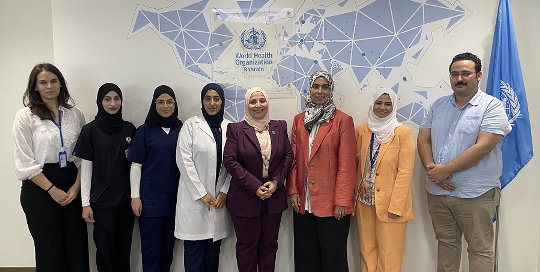
World No Tobacco Day: Call to Action Poster Campaign
Overview:
In celebration of World No Tobacco Day and the WHO’s 75th anniversary, the WHO Country Office in Bahrain launched the “Grow Food, Not Tobacco” poster campaign to raise awareness about tobacco’s harmful impact and promote sustainable farming alternatives. Nursing students from the University of Bahrain’s College of Health and Sport Sciences actively participated by creating posters reflecting the campaign’s theme, demonstrating their dedication to health advocacy and awareness.
Evidence: Who News Website
Impact
Relevant SDG 3 Targets and Indicators:
